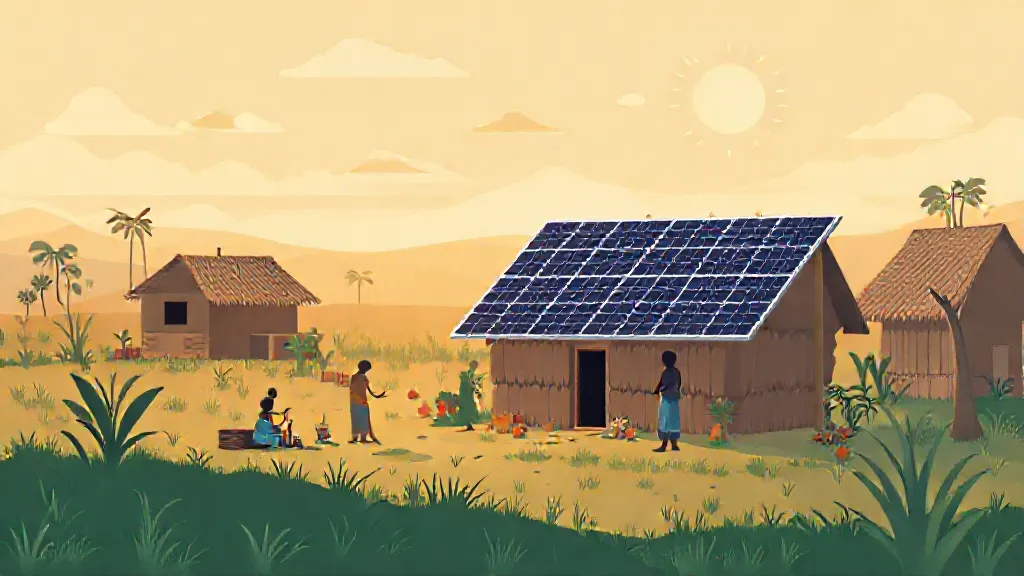Clean energy plays a pivotal role in the development of emerging economies, particularly in the context of sustainable growth and environmental protection. As these nations grapple with the dual challenges of economic advancement and climate change, renewable energy sources such as solar, wind, and hydroelectric power offer promising solutions. This article delves into the various ways clean energy is transforming the landscape of developing countries, highlighting its benefits, challenges, and future prospects.
Empowering Local Communities through Energy Access
One of the most significant advantages of clean energy in developing countries is the provision of access to electricity for underserved populations. According to the International Energy Agency (IEA), approximately 770 million people worldwide still lack access to electricity, with a considerable portion residing in Sub-Saharan Africa and South Asia. Renewable energy technologies, particularly decentralized solutions like solar home systems and mini-grids, can bridge this gap.
For instance, in countries like Bangladesh and Kenya, solar energy initiatives have enabled rural communities to power homes, schools, and businesses, fostering economic activities and improving living standards.
Economic Growth and Job Creation
Investing in clean energy not only enhances energy access but also stimulates economic growth and job creation. The renewable energy sector has proven to be a significant source of employment, with the International Renewable Energy Agency (IRENA) reporting that over 11 million people were employed in this sector globally by 2018.
In developing countries, local manufacturing, installation, and maintenance of renewable energy systems create jobs and provide training opportunities. For example, in India, the solar industry has generated hundreds of thousands of jobs, contributing to poverty alleviation and skill development.
Mitigating Climate Change and Environmental Degradation
Developing countries are often the most vulnerable to the impacts of climate change, yet they contribute the least to global greenhouse gas emissions.
Clean energy offers a pathway to mitigate these effects by reducing reliance on fossil fuels and decreasing carbon emissions. Countries like Costa Rica have successfully transitioned to renewable energy sources, achieving over 99% of their electricity generation from renewables. This shift not only helps combat climate change but also preserves local ecosystems and biodiversity, which are crucial for the livelihoods of many communities.
Enhancing Energy Security and Resilience
Energy security is a critical concern for developing nations, often subject to fluctuations in fossil fuel prices and geopolitical tensions. Clean energy technologies provide a degree of independence from imported fuels, enhancing national security and resilience. For instance, Ethiopia has invested heavily in hydroelectric power, significantly reducing its dependence on imported oil and improving its energy self-sufficiency.
This shift not only stabilizes energy prices but also fosters long-term economic stability.
Challenges in Clean Energy Implementation
Despite the numerous benefits, the transition to clean energy in developing countries is fraught with challenges. Financial constraints, lack of infrastructure, and insufficient technical expertise can hinder the deployment of renewable energy technologies.
Many governments struggle to secure the necessary investments to develop these projects. Additionally, the intermittency of renewable energy sources like solar and wind necessitates the development of robust energy storage solutions, which can be costly and complex to implement.
International Cooperation and Funding
To overcome these challenges, international cooperation and funding are essential.
Initiatives such as the Green Climate Fund and partnerships between governments, NGOs, and private sectors can provide the necessary financial support and technical assistance to developing countries. Collaborative efforts can facilitate knowledge sharing and capacity building, enabling nations to harness their renewable energy potential effectively. For instance, the African Development Bank has launched programs to support clean energy projects across the continent, aiming to enhance energy access and promote sustainable development.
The Future of Clean Energy in Developing Countries
The future of clean energy in developing countries looks promising, with technological advancements and decreasing costs making renewable energy more accessible. As countries set ambitious targets for carbon neutrality, the role of clean energy will be pivotal in achieving these goals. Countries like Morocco are leading the way with large-scale solar projects, showcasing the potential for renewable energy to drive economic growth and environmental sustainability.
Conclusion: A Path Forward
In conclusion, clean energy presents a transformative opportunity for developing countries, addressing energy access, economic growth, climate change, and energy security. While challenges remain, the collective efforts of governments, international organizations, and local communities can pave the way for a sustainable energy future. Embracing renewable energy not only empowers these nations but also contributes to global efforts in combating climate change and promoting sustainable development for all.
